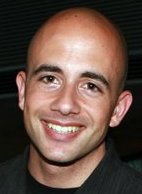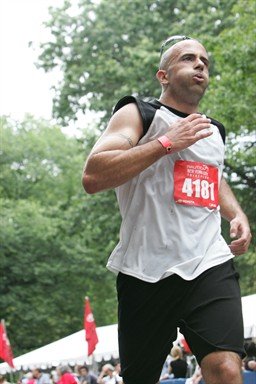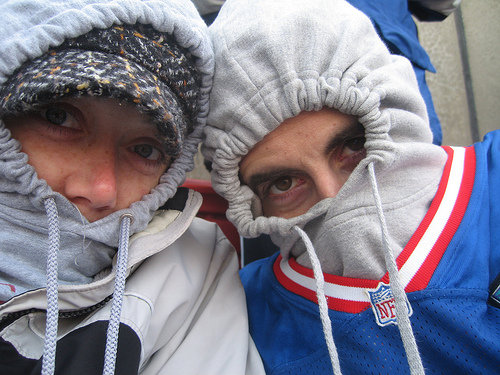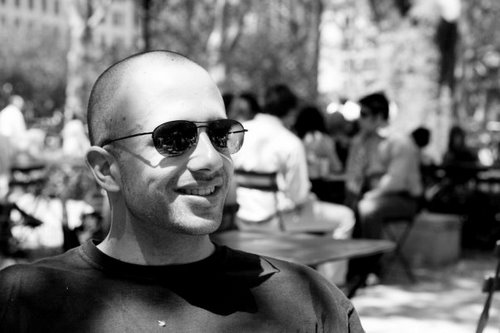- Learn About How VCs Raise Money By Someone Who Was Pitched by Fred Wilson
- Find Out Why Charlie Wanted To Be A Guidance Counsellor
- How To Find Out Which Are The Best Tech Events In NYC Each Week
Full Interview Audio and Transcript

Personal Info
Sports Teams: New York Mets, New York Giants
Favourite Books:
- The Fountainhead by Ayn Rand
- Why Don’t Students Like School: A Cognitive Scientist Answers Questions About How the Mind Works and What It Means for the Classroom by Daniel T. Willingham
- Emergence: The Connected Lives of Ants, Brains, Cities, and Software by Steven Johnson
Favourite Entrepreneurs: Matt Blumberg, Anthony Casalena
Twitter: http://twitter.com/ceonyc
Personal Blog: http://thisisgoingtobebig.com
Company Website: http://www.firstround.com
Interview Highlights
This is a condensed audio transcript. The full source audio is provided if needed. The interviewee may post corrections in the comments.
Adrian Bye: Today I’m talking with Charlie O’Donnell. Charlie is one of the central figures in the New York technology scene of the startups in Manhattan. And so I’m really interested to talk with Charlie. Charlie, thanks for joining us.
Charlie O’Donnell: Thanks for having me.
Adrian Bye: And you’re also obviously working with First Round Capital.
Charlie O’Donnell: Yes, yes. I’m an EIR, which technically stands for entrepreneur-in-residence, but I think it more realistically stands for entrepreneur-in-recovery.
Adrian Bye: OK. Actually, tell us what you’ve been doing before you got involved with First Round, before you got involved in the stuff you’re doing in the tech scene. What were you doing like five years ago?
Charlie O’Donnell: Well, five years ago is pretty much around the time where I got started with the tech scene. Like a lot of people in New York, I was basically in the finance industry.
I grew up here in Brooklyn and basically had my eyes set on sort of Wall Street, because that’s generally major from a career standpoint. I was working for the General Motors pension fund, investing in private equity and venture capital. But most of the venture capital we had done was Boston-based or Silicon Valley.
And late ’04, two guys with an early-stage fund came to pitch us. That was Fred Wilson and Brad Burnham with Union Square Ventures.
Adrian Bye: I’m really interested in the other side of VC. How does that work? You’re the first person I’ve talked to that knows the other side. Do guys like Fred come and pitch you?
Charlie O’Donnell: Yeah, it’s interesting. I have worked on every level of this. It’s really actually fascinating. When people talk about is venture capital going away? Fund returns aren’t really that good. What does it say for the asset class?
I think you need perspective on that. And a couple of things. One, I don’t thin venture is an asset class. You could aggregate a whole bunch of funds and, sure, their performance somewhat loosely correlates with each other.
But the reality of venture capital as a collection of funds is that the best-performing funds always do well. The asset class on the whole doesn’t really perform that well compared to the pubic market. I mean, if you just literally took an index fund of every single venture capital fund and every deal done, it’s actually not that great. The real separation is your ability to pick managers. The tough thing is judging who the right people are
So I spent two years at Union Square and really, really got to enjoy working with early-stage entrepreneurs, and at some point just almost couldn’t help myself in terms of jumping across the table. And I wound up spending a year at one of their portfolio companies, a company called Dotcast, as a product manager, where I got a really great opportunity to work with technical teams and help launch a product.
Their advice to me was even if you plan on continuing on the venture capital side, you should really know what it’s like to work at a startup. And so I got some fantastic operational experience.
What I was really passionate about was this idea that was kicking around in my head related to careers and career information. I do a lot of career mentoring, and what I really see as sort of the problem in this area is lack of information. People, it’s not that they don’t know what they want to do, they don’t know what’s out there. People don’t realize that you could be a physics major and work in a hedge fund. Or you could be an anthropologist and go work for a marketing agency.
But there are people who have actually done that. And if you just had good information about what everybody wound up doing and where the wound up going, it would be pretty helpful.
Adrian Bye: You could be like a career adviser at college.
Charlie O’Donnell: I certainly thought of that, and was good friends with one of the career directors at one of the local universities. And I inquired about a job and she said, “Trust me, you don’t want it.” She said, “Do you know what the salary is? Trust me, this is not going to be interesting to you.” So the reality was the salary was the signal of how important most universities consider that function, and unfortunately it’s not very.
Adrian Bye: So are you planning a startup to do exactly that? To do that on a scale in the world, right?
Charlie O’Donnell: Exactly. It’s what I want to do. That was the beginning of my entrepreneurial efforts.
Adrian Bye: So you raised money. And I say, you did actually pretty – you made like New York City’s best angle round for your startup. You had like everybody investing in you. How did you do that, and then what happened next?
Charlie O’Donnell: Yeah, we had 21 angel investors. These were all savvy venture professional, to there wasn’t a lot of term sheet wrangling or legal nitpicking. A relatively friendly round from a term perspective.
And like what I tell a lot of entrepreneurs, go to the people who you know. 18 or 19 out of 21 investors that we had were first-level connections, people that I’d worked with while at USV or had just had known from the tech scene.
My and my partner actually, how we wound up with a lot of those, my co-founder Alex Lines, when we started out we probably took, I don’t know, probably 45 or 50 meetings. Not for pitching for investment, literally for feedback. Sometimes for feedback on the idea and sometimes for feedback from two-person co-founding teams to literally ask them, “How do you make decisions between the two of you?
Adrian Bye: And so how did that company do?
Charlie O’Donnell: We hung around for about two years and change. So basically the plan was to leverage data that we had crawled off the web to paint a picture of what career paths looked like, and create some interesting analytical and directed applications around it.
And so we decided we were going to raise about $350,000 to get a prototype sort of off the ground. And then raise a real venture round to kind of turn that into something of a business. Everybody kind of nodded their heads around the table and said, “Yeah, sounds good.” We executed on that prototype. I think for a group of first-time entrepreneurs, I think it came out pretty well. And we had some positive feedback.
But the timing for our venture round, we were looking for venture capital money in October of 2008. And that didn’t set up too well. Most of the early-stage investors were kind of closed for business. The reality is, our project was something that really needed six engineers and not two-and-a-half. So we kind of lost momentum at that point.
Adrian Bye: Do you think if you would have had more money, you would have made it?
Charlie O’Donnell: I think if we had more money we would have gotten a lot more done. I think it was a combination of two things. It was certainly a bigger project as specced out than what we could have put together in our angel rounds, but certainly we could have executed better.
And you always sort of imagine that there are things you could have done better in hindsight, but it was a bigger project than what a small angel round could do. Somebody asked me the other day what I think of the whole lean startup movement. And I said that’s good for some ideas and it’s good if it fits the nature of how you work as an entrepreneur. But there are some ideas that need six engineers hacking away at something for 18 months before they discover where the real value is.
It’s not going to be very lean. It’s not a $20 million startup, but a lot of time, especially when you’re dealing with data and analytics, there may not be an obvious sort of customer until you make the technological or computational discovery. So certainly more money would have helped. I certainly take responsibility over – I probably could have been a better product manager and set shorter-term milestones.
I think one of our biggest missteps was leaving potential revenue on the table, in the job space. If you put together a pool of profiles or resumes, it’s monetizable. It’s kind of an old, boring business that everybody else does, but there’s a way to make money off it it.
And it wasn’t a way to make money that we were most interested in, so we didn’t think we had to worry about it. But no one every thinks the stock market is going to crash until it crashes. Had we maybe taken some of that focus and put it towards maybe getting some early revenues, maybe we could have lasted a little bit longer or hired another couple of engineers.
Adrian Bye: Do you think if you’d have been doing that company during like 1999, would it have been easier for you to raise your next round
Charlie O’Donnell: Yes, I think so. Well, I mean, certainly in that kind of funding environment. It’s funny, because in 1999, we probably wouldn’t have that the technology that would have allowed us to do the crawling and the natural language processing. But certainly as inexpensively as we were able to do it. And the other thing which was critical to what we were working on, we were crawling profiles off the web. There are upwards of 20 million resumes floating around online that we were analyzing.
So we literally had like, other than the sort of engineering costs, we didn’t have a cost to acquire resumes for analytical purposes. They were just out there; Google was telling us where they were. And I’d spoken to a couple of people at volt.com, and they had looked into the idea of doing something similar years ago, but there just literally weren’t enough profiles around. And the technology wasn’t there to sort of analyze them anyway.
Adrian Bye: So basically you went out again, you tried to raise money, you couldn’t. So you were like, OK, we’re just going to have to shut this down and go out of business.
Charlie O’Donnell: Yeah, we topped off our angel round a little bit, a local fund here. It was a little bit sort of see if we can possible raise, and we stretched it out. We made it last until September of ’09. Some pretty lean times.
But eventually we made the call and said we really need to work on this full-time and see if we can sell it. In hindsight, one of the lessons learned is that selling is a full-time process. Trying to sell your company or sell the assets.
Right now we’re seeing a number of talent acquisitions in the market, but very few IT and technology acquisitions. And when those happen, it takes a while, because you have to show somebody the value of the IP. Sometimes there’s integration work to be done.
We didn’t necessarily realize that it would almost be a full-time job, and found in incredibly difficult to facilitate a sale while we were working full-time at other jobs. And actually when you’re doing something like algorithms, you quickly learn that potential acquirers don’t just want the code, they want the person who wrote the algorithm.
Adrian Bye: You said you were working full-time somewhere else while you were doing this startup, were you?
Charlie O’Donnell: No, no. It’s just the point that we stopped working on it full-time was the point and which we looked to try and sell the assets, and that’s just very difficult while you’re working on other things.
Adrian Bye: Oh, right. Were you able to make a sale?
Charlie O’Donnell: We did not find somebody who was just willing to take the code as-is. Because we had all needed to take full-time jobs, and weren’t necessarily willing to go work at a potential big acquirer for a year if it wasn’t any kind of a viable exit.
Our angel investors said to us, “If all this is going to be is trying to get half or three-quarters of our capital back and force you guys to go work at monster for a year.” They’re like, “Don’t worry about it. It’s not worth it.
Adrian Bye: And I guess if you raised $350,000 across 21 angels, they’re only giving you, what, $10,000 each or so.
Charlie O’Donnell: Yeah. I mean, $10,000 or $20,000, obviously nobody likes to lose money, but it’s not as if we had people writing million dollar checks.
Adrian Bye: OK, very cool. And you also run a pretty cool New York newsletter for those interested in the New York scene. Do you want to just give the name and have people go sign up?
Charlie O’Donnell: Yeah, sure. Although what do I even call it? It’s “This Week in the New York Innovation Community.” There’s a link to it on my blog, which is at thisisgoigntobebig.com. And it largely comes out of the fact that I have to be out there and networking and learning, so I kind of take a loot at all the events for the week and try to figure out what I’m going to go to. People started asking me what the cool things to go to were, so I about nine months I decided to send out what’s going on in New York, what’s the stuff worth going to.
Adrian Bye: I didn’t realize that was your pitch, as someone who really has his ear to the ground of what’s going on. In fact, that might be a good place for people out of town to watch as well. If you want to come to New York and you want to see what to go to, look at that Charlie’s going to. Because I know there’s a lot of stuff in the newsletter. Is there a filter where like, OK, if there was only one thing this week, this is where you’re going to go to?
Charlie O’Donnell: Sometimes I’ll pick out the events of the week. If there’s no sort of clear-cut winner, I won’t put anything. But occasionally I’ve done that. It comes from I know most of the other people who throw events, and know who really goes out of their way to put something on that’s quality. Or just like has the best network of people, so they get the best speakers.
In general, the Tech Meetups are great. Tikva Morowati runs the Ignite, and those are phenomenal. Therese’s a bunch of really great meetups. The New York Gaming Meetup that Brad Hargreaves runs. There are a couple of hacker events actually run at Meetup’s headquarters. So it’s a pretty thriving community and it’s a lot of high-quality stuff.
Adrian Bye: Cool. OK, why don’t we wrap it up there. Charlie, thanks so much for your time.
Charlie O’Donnell: No problem. I appreciate it.
Adrian Bye: Cool.









